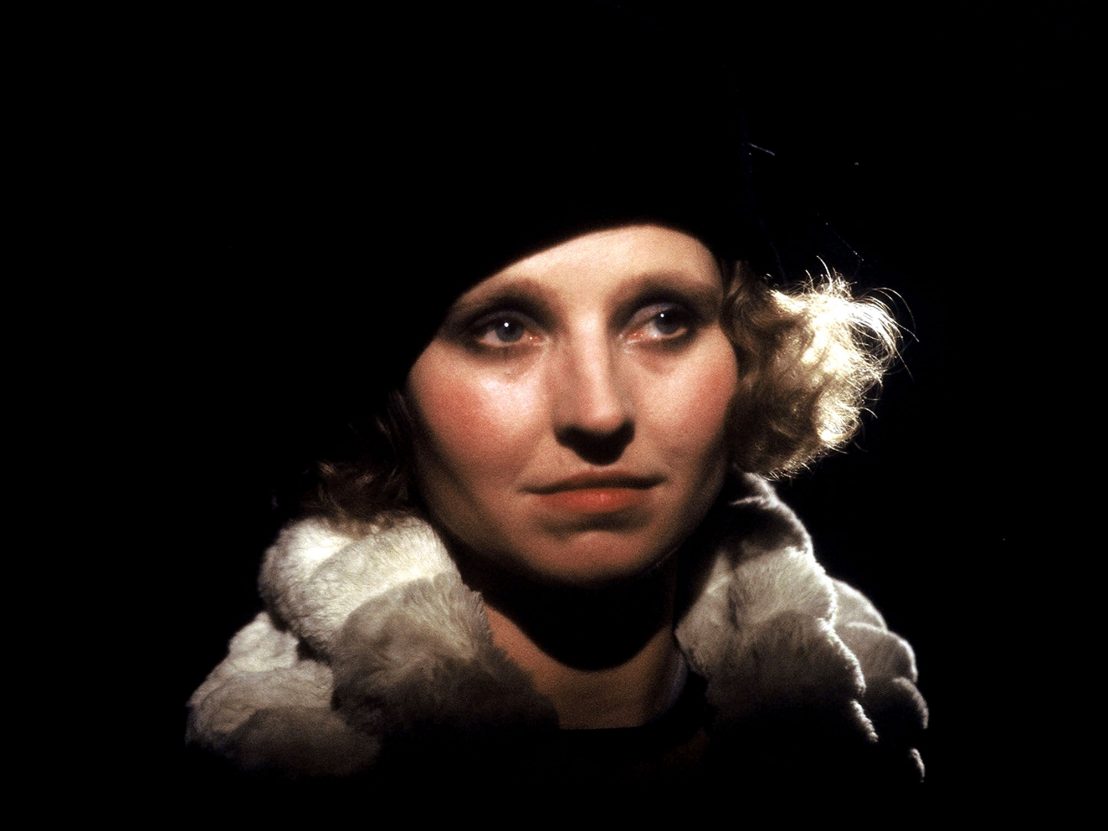
The German actor reveals how she coped with being Rainer Werner Fassbinder’s muse.
Rainer Werner Fassbinder was a director known for employing a stock company of actors who appeared in many of his movies. New stories told with the same faces. But if you had to pick a single person who perhaps stood that little bit higher, was just a little more beloved than the rest, then Hanna Schygulla is the name that comes to mind.
In his 1969 debut feature, Love Is Colder Than Death, she exemplifies the ice blond moll and showcases her sultry, soporific performance style. By their final collaboration, The Marriage of Maria Braun, made 10 years later, she had transformed and matured, but her ethereal presence in front of the camera remained entirely unique. A full retrospective of the director’s film and TV work at London’s BFI Southbank is also a chance to celebrate one of the greatest screen actors of the modern era. We met up with Schygulla to find out what it was like working with the maddening maestro.
LWLies: The 1968 short film, The Bridegroom, the Comedian and the Pimp, was your first time in front of a camera. How did that feel?
Schygulla: The director was Jean-Marie Straub, who is quite a phenomenal artist though he’s not very known. He was shooting the moments of a play when the actors entered or left the stage. That idea was unusual, and for us it felt not that different to what we had been doing stuff like that on stage. Fassbinder was into what he liked to call “anti-theatre”, meaning that because he didn’t have the money to do films, which is what he always wanted to do, he did theatre a little like film. So he would change and alter the angle of looking at how a story is told. He always liked to turn things around.
Is there a difference in playing for a camera than working in theatre?
In the first movies, no. Because the camera was not very close to us. It was a way to get into it which was not particularly cinematic. But as Fassbinder’s career went on, his camera got closer to us.
Did you have time to reflect on the performances, or was it a case of just moving on to the next film?
He wanted everyone to look at the rushes. At the time, you couldn’t just have a video and play it back instantly. The film was developed and then we’d all sit down and look at what had been shot. It was like a ritual. He’d talk about what could be done better or differently.
Did he ask for your feedback?
No.
So why did he want you to see the rushes?
He was a man who embodied opposing forces. On one hand, he was the total filmmaker. He knew exactly what he wanted. On the other, he gave quite a bit of responsibility to everyone taking part in the film. People liked working with him because he only interfered when he had a clear way he wanted to go and it was that way and no other. If not, he liked that people had their own creativity.
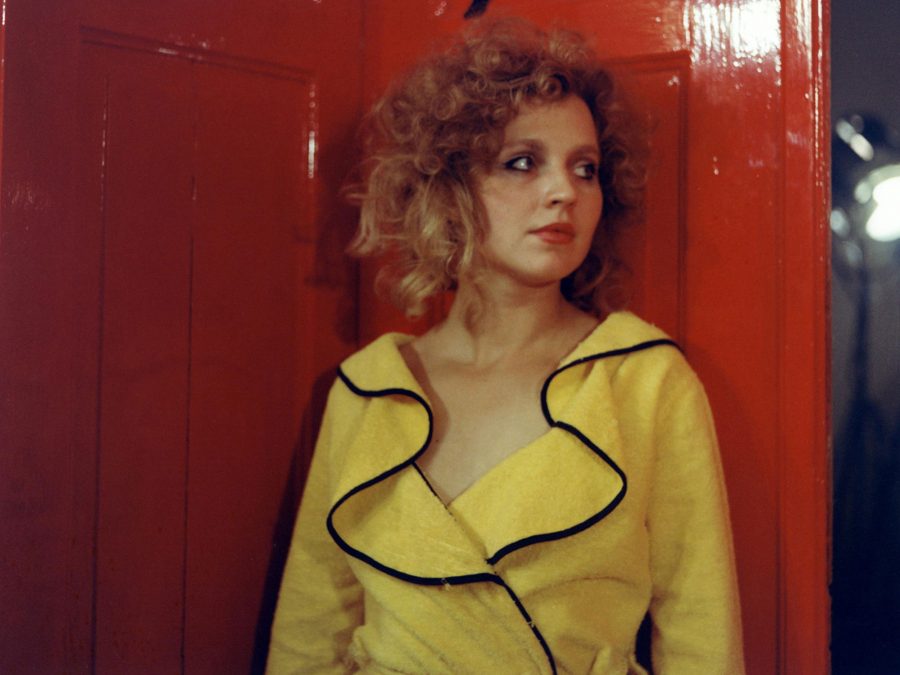
You starred in the TV series Eight Hours Don’t Make a Day, where you wear a giant perm wig throughout. Is that something Fassbinder asked you to wear or did you choose it yourself?
No, no. We stuck closely to an image we had found. Before, my hair was my hair. But then I thought, ‘Oh my goodness, if I do six chapters, I’ll always have to mess up my hair, so why not just use a wig?’ When I saw it I realised that a wig never actually moves like your own hair. He didn’t say he wanted me to look like that. He’d only tell you when he didn’t like something. Actually he didn’t tell you, he just pulled a face. So then you’d try to offer something else.
Was this the same on takes? Did you get the face?
He wanted to get a certain choreography, meaning the interplay of bodies in the frame.
Would he physically move your body?
Yes, this absolutely was his way to direct. He never gave psychological explanations. He didn’t talk about roles or characters. He had very concrete ideas about the choreography of bodies and certain gestures that had to be accomplished. He would occasionally leave it to us to invent something. But most of the time he would arrive on set with these little drawings. They were very schematic. That was his homework. That was why he could work so quickly. He knew. He learned filmmaking by film watching.
Did he ever get yourself or the group to watch the films he liked?
Not systematically. But we watched Antonio das Mortes by Glauba Rocha. We watched The Damned by Visconti. He wanted us to see Vivre sa Vie by Jean-Luc Godard, which he saw more than 20 times. He would do by watching. And this is why he had those images that he wanted to quote. He watched whatever was on. He watched movies just keep himself out the house. In his early life, he didn’t get along with his step father, so he would go and watch movies all day.
Do you remember the first time you and Rainer met?
Yes, I do. I was in university and I getting kind of tired of it. The process of becoming an intellectual was frustrating for me. I was making some extra money at the time working as a waitress. One of the other girls at the restaurant told me about drama school, and she invited me along. I said why not. The coincidence was that he was in the same class.
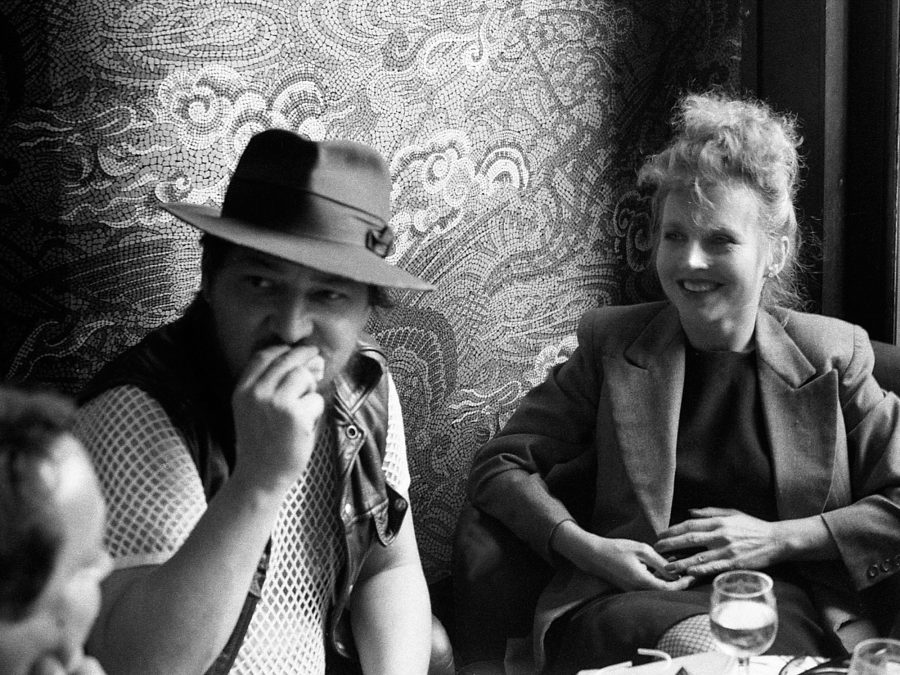
Did he approach you?
It was a private school. We only met once a week. Everyone would improvise on a theme, and then afterwards we’d all go and drink beer. We did not talk much. He was extremely shy, especially with me. Once he saw a scene that I had been improvising, and he made his boyfriend come up to me and tell me that he liked it very much.
Did you then approach him?
No. I just found that very strange. He was clearly the rebellious type, so I couldn’t quite understand what he liked about this scene. It was Goethe, and a love scene between two people who were supposed to be brother and sister. It wasn’t really a love scene, in the sense of any sexual intercourse, but it was all based on not showing feelings. Later I understood why he liked it, because that was the kind of relationship that we had.
Did he ever tell you why he kept casting you in his films?
No. He would make remarks to the others, tell them that ‘she’s a star’ or whatever. But to me, no, never. When I said I need a break and I want to get some distance, he was so hurt. I took four years before he got over that. He contacted me to be in The Marriage of Maria Braun.
“David Lynch sent me the script for Blue Velvet.... I found it horrifying”
Is there a Fassbinder film that you wanted to be in but you weren’t cast?
Yes. That was Lola. He said that the next film we’d do is Lola. Then, while we were filming Berlin Alexanderplatz, we were crossing in a doorway. And in this very casual way, he told me that he’d cast Barbara Sukowa in Lola. I said, ‘Okay, why?’ and he said that I’d been talking too much about it. And I said that I was doing promotion for Maria Braun and everyone would ask what the next film would be. For some reason, that annoyed him. Or maybe he got fed up with me?
How often were you in contact with Hollywood?
Not much. I had been there once for sure, but I can’t remember which studio I went to. I did Dead Again with Kenneth Branagh which was shot in Los Angeles. David Lynch did get in touch with me once. He sent me the script for a film called Blue Velvet. I found it horrifying. It was for the part of Dorothy Vallens [played by Isabella Rossellini]. The script didn’t feel at all like the finished movie. It was about a man who violates a woman, he keeps her in captivity and badly mistreats her. He even has his hand on her child. Then she almost starts liking it. When I read it I thought it was really sick stuff. That doesn’t mean that I wasn’t aware that he was a good filmmaker. At the same time I was dealing with the fact that my mother was becoming old and I was living a very different life. The emotions I was experiencing at that time just made me think that I couldn’t do it. It seemed to me… kinky.
Did you see the film in the end?
Yes, I saw it and thought it was quite a good film. Especially the beginning and the end. I wrote David a letter telling him that I never would have guessed that that film would have come from the script he sent me. I’m not used to regretting decisions I make, as regret is a feeling that doesn’t create anything. But I said that if he asked me another time, I would say yes. But he never asked.
RW Fassbinder runs at BFI Southbank until May 31. For more info visit bfi.org.uk
Published 5 Apr 2017
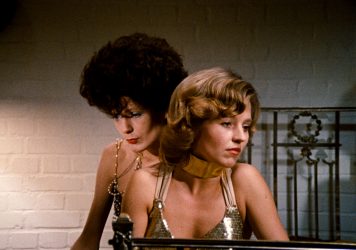
An essential viewing guide to the work of this German maestro ahead of a full BFI retrospective.
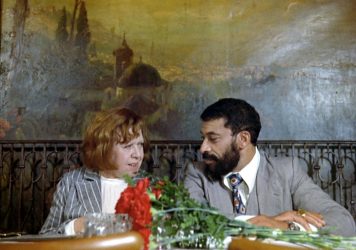
Rainer Werner Fassbinder’s subversive romantic masterpiece returns ahead of a full BFI retrospective.
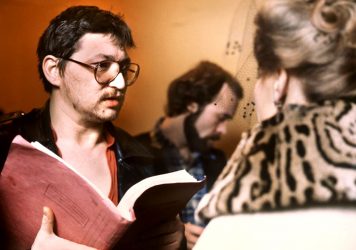
He was an abusive and tempestuous artist, but the emotional power of the late German director’s tragic melodramas is undeniable.